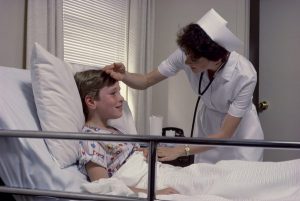The Many Faces of the Nursing Practice: Types of Nurses
February 10, 2023 by Rn2b
Filed under Types of Nurses
Nursing is a diverse and dynamic field that offers a wide range of career options for individuals who are passionate about helping others. The healthcare industry is constantly growing and changing, which means that there is a growing demand for qualified and experienced nurses. To help individuals understand the different types of nursing careers available, let’s explore some of the most common types of nurses and their roles.
- Registered Nurse (RN)
A registered nurse is a healthcare professional who is responsible for providing direct care to patients. They are trained to assess patient needs, develop and implement care plans, and manage patient care. Registered nurses also collaborate with other healthcare professionals to ensure that patients receive the best possible care. They may work in hospitals, long-term care facilities, clinics, or other healthcare settings.
- Licensed Practical Nurse (LPN)
A licensed practical nurse is a nurse who provides basic care to patients. They work under the supervision of a registered nurse or physician and are responsible for taking vital signs, administering medications, and providing basic care to patients. LPNs typically work in long-term care facilities, hospitals, or clinics.
- Certified Nursing Assistant (CNA)
 A certified nursing assistant is a nurse who provides basic care to patients, such as bathing, dressing, and feeding. CNAs also take vital signs and assist patients with mobility. They work under the supervision of a registered nurse or licensed practical nurse and are typically found in long-term care facilities, hospitals, or clinics.
A certified nursing assistant is a nurse who provides basic care to patients, such as bathing, dressing, and feeding. CNAs also take vital signs and assist patients with mobility. They work under the supervision of a registered nurse or licensed practical nurse and are typically found in long-term care facilities, hospitals, or clinics.
- Pediatric Nurse
A pediatric nurse isa nurse who specializes in providing care to children. They work in a variety of healthcare settings, including hospitals, clinics, and private practices, and are trained to address the unique health needs of children, including physical, emotional, and developmental needs. Pediatric nurses also work closely with parents and families to provide support and education.
- Oncology Nurse
An oncology nurse is a nurse who specializes in caring for patients with cancer. They work in a variety of healthcare settings, including hospitals, clinics, and private practices, and are trained to address the unique physical and emotional needs of patients with cancer. Oncology nurses also work closely with oncologists and other healthcare professionals to develop and implement care plans for patients.
- Emergency Room Nurse
An emergency room nurse is a nurse who specializes in providing care to patients in emergency situations. They work in emergency departments and are responsible for assessing patients, stabilizing their condition, and providing care until the patient can be transferred to another healthcare facility for further treatment. Emergency room nurses must be able to think quickly and respond effectively in high-pressure situations.
- Operating Room Nurse
An operating room nurse is a nurse who specializes in providing care to patients during surgical procedures. They work in operating rooms and are responsible for preparing patients for surgery, monitoring their condition during surgery, and providing care after surgery. Operating room nurses must be knowledgeable about surgical procedures and equipment, and must be able to work effectively in a fast-paced, high-pressure environment.
- Psychiatric Nurse
A psychiatric nurse is a nurse who specializes in caring for patients with mental health conditions. They work in a variety of healthcare settings, including hospitals, clinics, and private practices, and are trained to address the unique physical and emotional needs of patients with mental health conditions. Psychiatric nurses also work closely with psychiatrists and other mental health professionals to develop and implement care plans for patients.
- Travel Nurse
A travel nurse is a nurse who travels to different healthcare facilities to provide care. Travel nurses are often hired on a contract basis and are responsible for providing care in a variety of healthcare settings, including hospitals, long-term care facilities, clinics, and even disaster relief efforts. Travel nurses have the opportunity to work in different locations and gain valuable experience in different healthcare settings. This typeof nursing allows for flexibility, adventure, and a chance to expand one’s knowledge and skills.
- School Nurse
A school nurse is a nurse who provides care to students in school settings. They are responsible for assessing and treating student health issues, managing chronic health conditions, and promoting health and wellness in the school community. School nurses also collaborate with teachers and other school staff to ensure that students receive the best possible care.
- Home Health Nurse
A home health nurse is a nurse who provides care to patients in their homes. They work with patients who have chronic illnesses, disabilities, or post-operative needs, and are responsible for assessing and treating their health needs, monitoring their condition, and providing support and education to patients and their families. Home health nurses play a vital role in helping patients receive quality care in the comfort of their own homes.
- Forensic Nurse
A forensic nurse is a nurse who specializes in providing care to patients in forensic settings, such as correctional facilities, crime scenes, and courts. They are responsible for collecting and preserving evidence, performing medical examinations, and providing expert testimony in legal proceedings. Forensic nurses must have a strong understanding of the legal system and must be able to work effectively in high-pressure situations.
The field of nursing offers a wide range of career options for individuals who are passionate about helping others. Whether working in a hospital, long-term care facility, clinic, or another healthcare setting, nurses play a critical role in ensuring that patients receive the best possible care. Each type of nurse has unique responsibilities and skills, and choosing the right type of nursing career depends on an individual’s interests, experience, and desired work environment. Whatever type of nursing an individual chooses, they can be confident that they are making a positive impact on the lives of others.
5 Highest Paying Nursing Specialties
August 24, 2019 by Rn2b
Filed under Nurse Salary Information, Types of Nurses
 When you initially decided to become a nurse, you would possibly have thought of nursing as a general job title in a very high-paying field. As you undergo school of nursing, you should notice nurses will choose between a spread of specialties, from midwifery to teaching.
When you initially decided to become a nurse, you would possibly have thought of nursing as a general job title in a very high-paying field. As you undergo school of nursing, you should notice nurses will choose between a spread of specialties, from midwifery to teaching.
There area unit several specialization choices, each with distinctive advantages, which is why nursing as a profession appeals to such a large type of individuals.
Popular, high-paying nurse specialties are:
- Certified RN anesthesiologist
 A CRNA prescribes and administers anesthesia to patients throughout medical procedures. To become a CRNA, you would like a master’s or doctoral degree and registered nurse certification. CRNAs represent half the anesthesia suppliers within the U.S.
A CRNA prescribes and administers anesthesia to patients throughout medical procedures. To become a CRNA, you would like a master’s or doctoral degree and registered nurse certification. CRNAs represent half the anesthesia suppliers within the U.S.
Median Annual Salary: $143,739
- Psychological state registered nurse
 Also called a psychiatrically registered nurse, P-MPs area unit chargeable for prescribing medications and assessing and diagnosis patients. They specialize in patients that suffer from mental state problems like depression, schizophrenic disorder, and emotional disorder. To pursue this field, you want to have your RN license and a minimum of a bachelor’s degree in nursing.
Also called a psychiatrically registered nurse, P-MPs area unit chargeable for prescribing medications and assessing and diagnosis patients. They specialize in patients that suffer from mental state problems like depression, schizophrenic disorder, and emotional disorder. To pursue this field, you want to have your RN license and a minimum of a bachelor’s degree in nursing.
Median Annual Salary: $101,602
- Pediatric Nurse:

Pediatric nurses primarily work with kids, as well as infants, elementary-aged children, adolescents, and teenagers. pediatric nurses facilitate great growth and development. Some aid settings might settle for candidates with an associate academic degree, however, almost like a bachelor’s.
Median Annual Salary: $58,914
- Orthopedic Nurse:
 Orthopedic nurses facilitate patients who area unit laid low with fractured bones, arthritis, osteoporosis, joint injuries, or alternative musculoskeletal problems. They assist doctors and patients before, during, and when medical science surgeries. To become an associate orthopedic nurse, you would like an associate RN license associated either an associate or a bachelor’s degree.
Orthopedic nurses facilitate patients who area unit laid low with fractured bones, arthritis, osteoporosis, joint injuries, or alternative musculoskeletal problems. They assist doctors and patients before, during, and when medical science surgeries. To become an associate orthopedic nurse, you would like an associate RN license associated either an associate or a bachelor’s degree.
Median Annual Salary: $101,034
- Nurse practitioner:
 Family Nurse Practitioners (FNPs) get to form long-lived connections with their patients and see them through each smart and difficult times. FNPs typically work collaboratively with medical care physicians, which implies they’re a friendly and acquainted face in their communities thanks to shutting, continual work with patients.
Family Nurse Practitioners (FNPs) get to form long-lived connections with their patients and see them through each smart and difficult times. FNPs typically work collaboratively with medical care physicians, which implies they’re a friendly and acquainted face in their communities thanks to shutting, continual work with patients.
In some states, nurse practitioners will operate their family practices and even impose controlled substances, giving them a high level of autonomy. where you reside, a typical visit with associate FNP would possibly embrace consultation, assessments, and going over prescriptions. Nurses of all specialties area unit presently terribly asked for, however nurse practitioners area unit probably to search out themselves in associate particularly friendly job market thanks to their high demand.
Median Annual Salary: $95,350
Nurse Certifications in the Emergency Department
August 26, 2009 by Rn2b
Filed under Becoming a Nurse, Critical Care Nurse (CCN), General Nurse Information, Nurse Programs, Types of Nurses
Certifications in the ED
For those nurses who would like to experience challenges and surge of adrenaline, then applying for a position in the Emergency Department is recommended. Emergency Department or more commonly known as ED is one of the main component of a hospital. Here is where patients are rushed in for urgent situations such as accidents, stab wounds, gun shots, poisoning and the likes. In order to be an Emergency Department nurse, you are required to have several certifications and qualifications in hand. In this article, you will be able to know what certifications are usually wanted or needed for you to become an ED nurse.
These nurses are those who are front liners when it comes to initial patient care. They are very keen when it comes to assessment of the patient, flexible but follows basic nursing principles, sharp when it comes to categorizing the patients according to their conditions (ED triage nurses), acts quickly but accurately, and can handle a lot of pressure. They give primary care to preserve life such as initial pulmonary – cardiac support and first aids.
Nurses who want to apply in the ED often have the problem of thinking what they might be asked for. For you to become and ED RN, you must have BLS or Basic Life Support, ACLS or Advanced Cardiac Life Support, and a little of Emergency Nursing Pediatric Course or ENDPC certification. If you want a little extra boost in your vitae, you can also opt to acquire Trauma certifications such as TNCC or Trauma Nursing Core Course, and/ or TNS (Trauma Nurse Specialist – which is only recognized in Illinois) and CEN or Certified Emergency Nurse. You must, however keep in mind that most hospitals offer now additional pay or incentives for extra certifications, so you may as well take the minimum certificates required for you to become an ED. However, at some point, you may wonder if you should only be acquiring minimum certificates in order to become an ED nurse. If you feel like taking it a little further than you have to, don’t hesitate to do it because the better it will be for you. Nurses should try hard to continuously elevate their standards not only for the sake of passing the requirements but for their own professional growth as well. Many new ED nurses would like to acquire all the certifications needed for ED – this is a good thing, because they can be very flexible as an ED nurse in the future compared to those who have taken the minimum requirements. ACLS, BLS, Standard First Aid, Peds and Trauma certifications should be obligatory for Emergency Department nurses.
Because of a lot of required certificates, some nurses tend to overlook the CEN certification. However, this is not recommended. CEN or Certified Emergency Nurse is a national qualification which confirms that you have undergone basic training and learned the primary competencies as an ED RN. If you want to exceed expectations, you should invest in study materials and take the test needed for it.

